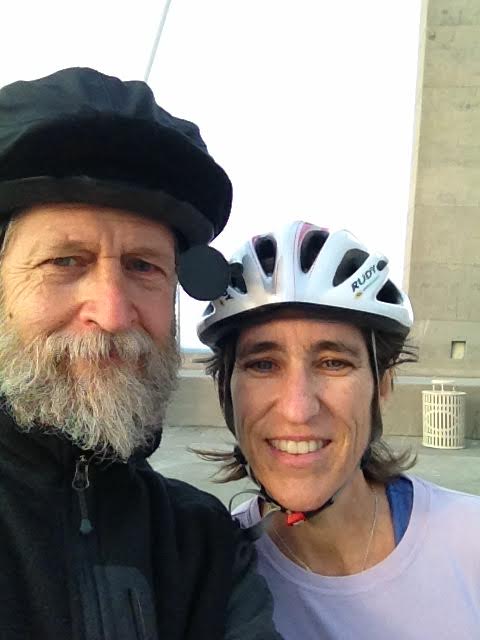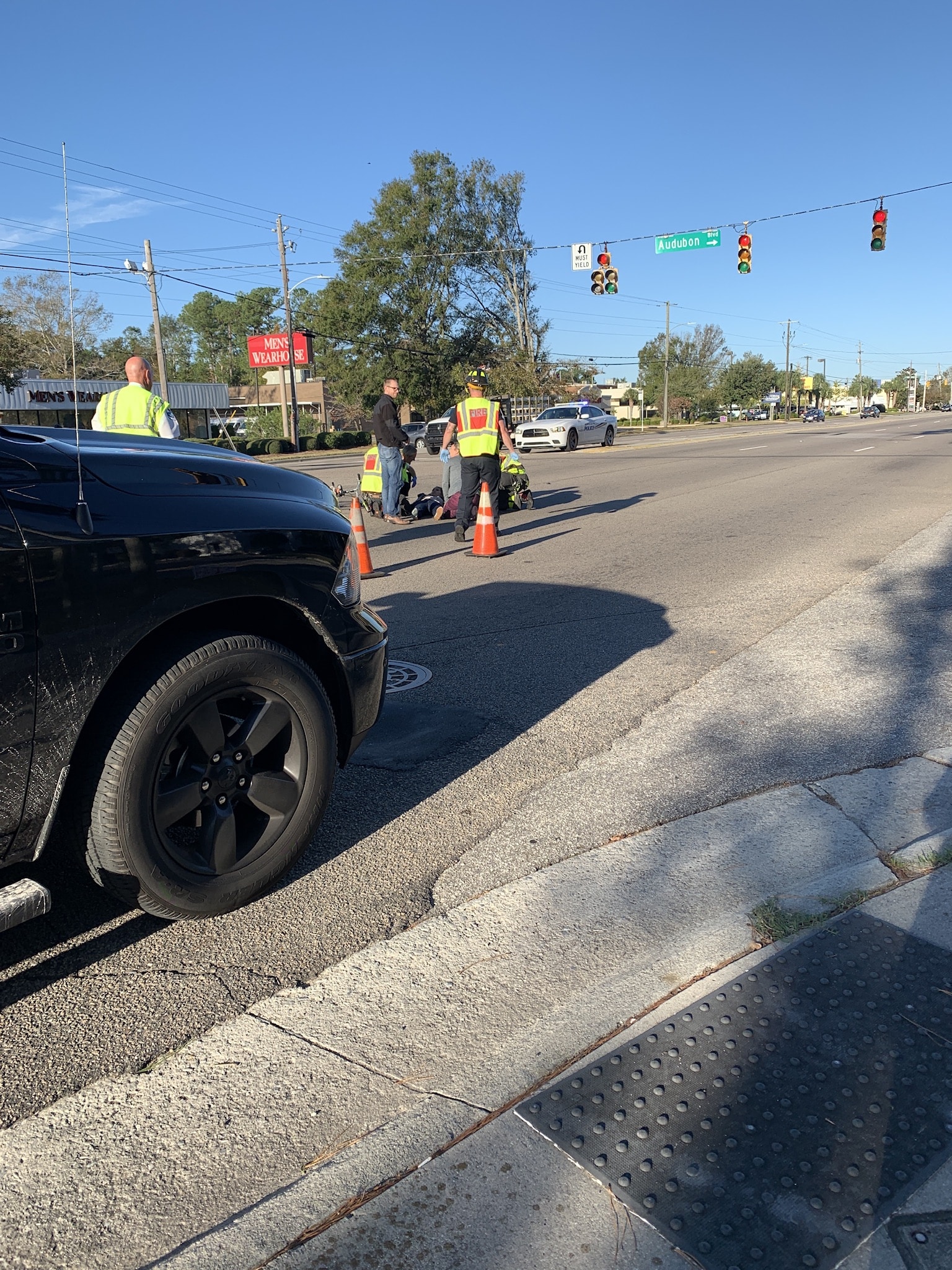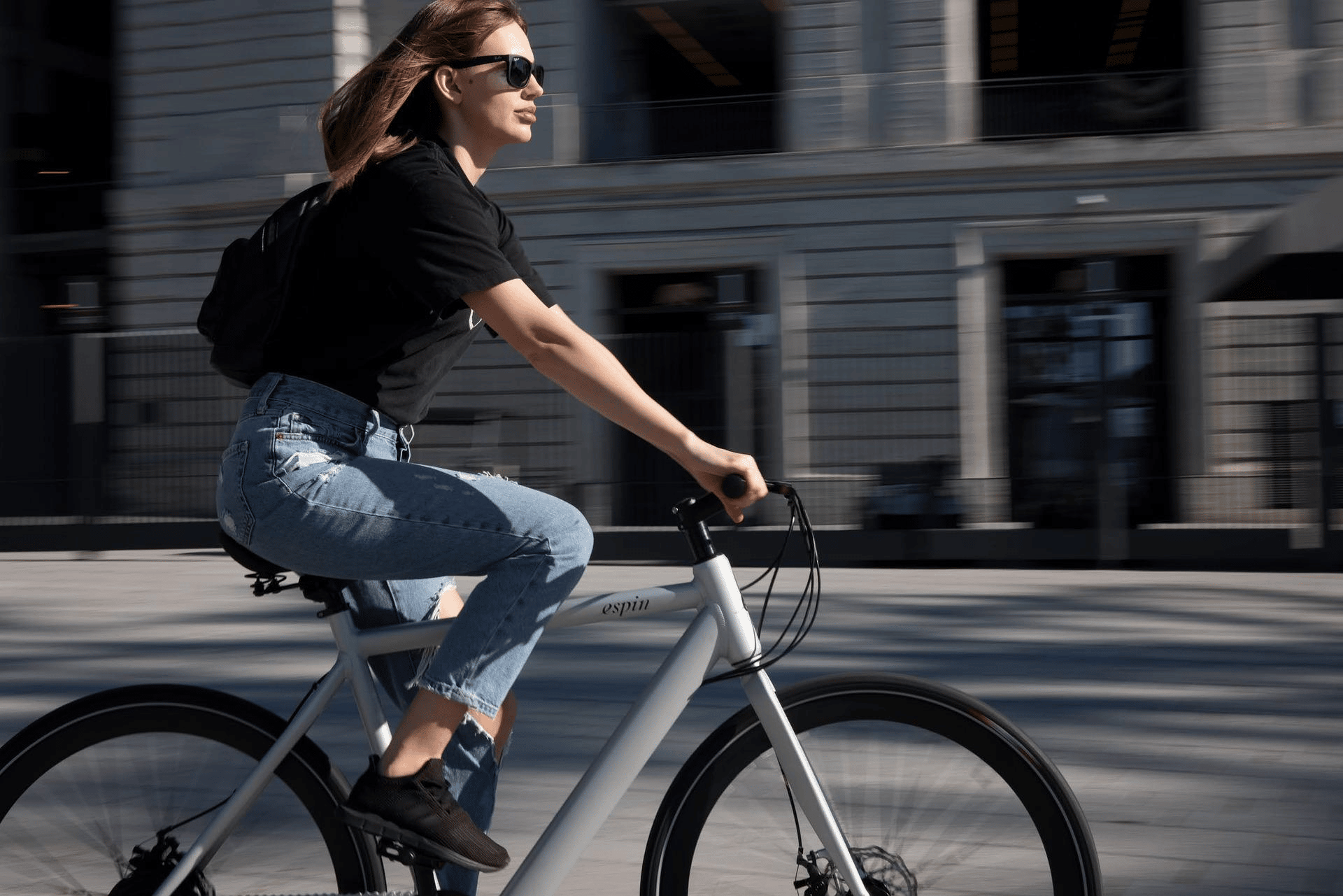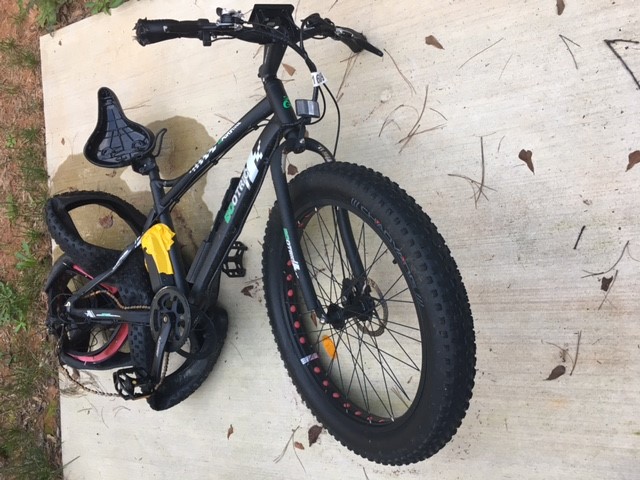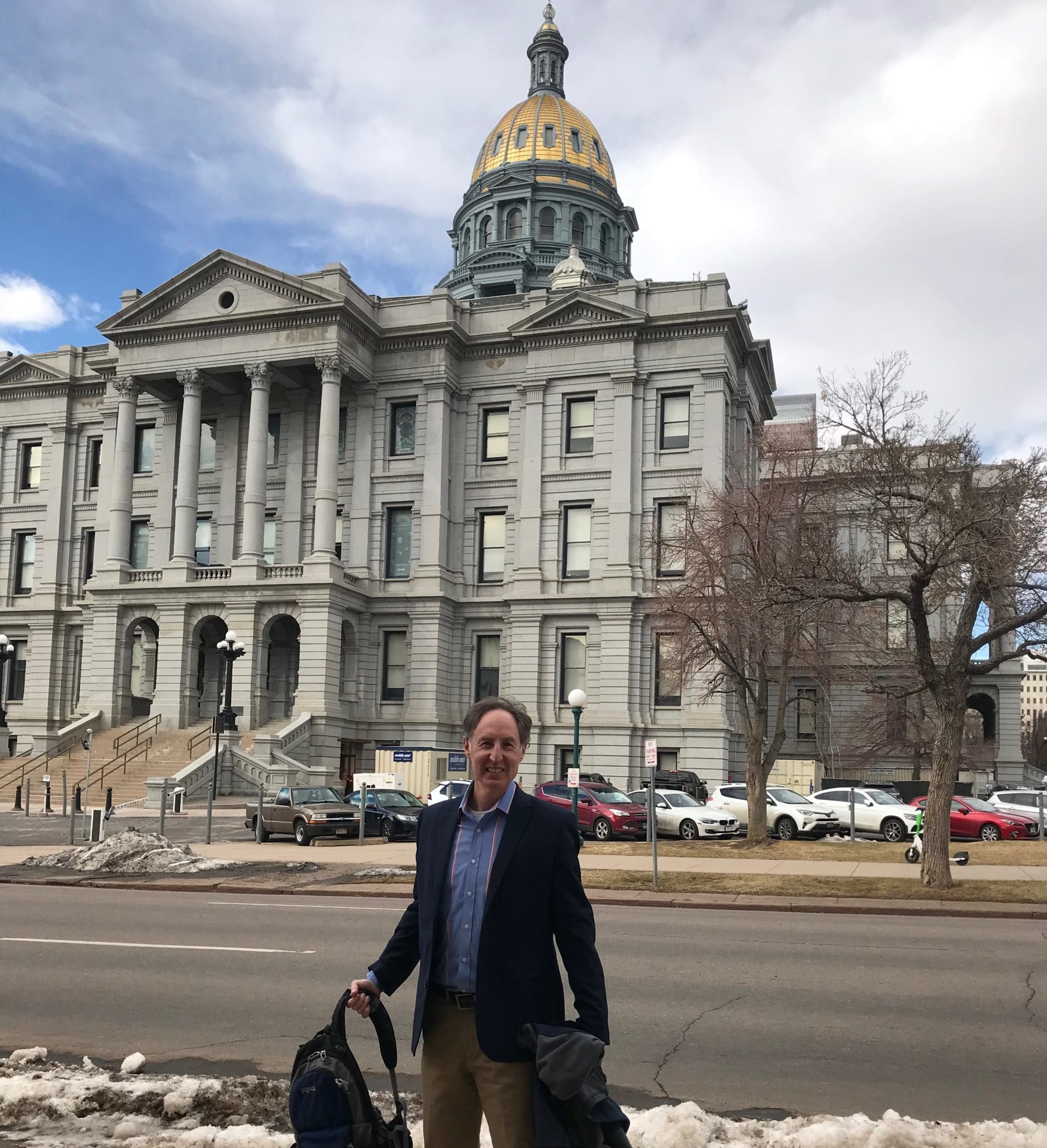If you were to name biking advocates, you probably wouldn’t put Charleston bicyclist Richard Moss high on your list. But Richard, pictured here with his wife, is making a difference all the same – one broken bottle at a time.
For the past 10 years, Richard has biked to his job as a senior applications analyst at the College of Charleston. He has made a daily habit of picking up the paper, cans, broken glass and other trash along his six-mile route.
Richard became a bike commuter for practical reasons. Parking on the college campus had become expensive, he says. Richard did not always have a safe route from his home in Mount Pleasant to the college campus. But that changed when a bike lane opened on the 2.5-mile Arthur Ravenel Jr. Bridge over the Cooper River.
Richard says he first started collecting roadside debris when he lived in Greenville, SC. “When I started riding the bike to work in Charleston, I decided to continue picking up the trash along the road,” he says. “After a while I noticed the occasional nail, screw or piece of metal so I tried to pick up those items, also.”
Richard makes it a priority to stop and pick up broken glass to save other cyclists the hassle of a flat tire. He recycles the aluminum cans he finds, and he also saves screws, bolts and other pieces of metal.
“At one point I had this huge pile of metal scraps,” he says. “I took it to the scrap metal yard and got about $20 for it. There’s no monetary attraction to it, but if you pick it up you have some responsibility for a proper disposal of it.”
Being the practical sort, Richard hangs on to any items he can use. The most useful item so far: an eight-foot step ladder.
“I got to it before it was run over,” he says. “For that, I had my wife come and pick it up at the foot of the bridge.”
Handbag Find Leads To Rescue
The most interesting item Richard has found led to the rescue of a person who allegedly jumped from the bridge. Here’s how Richard tells it:
One morning, on the way into work, I found a large handbag on the bridge (about halfway down, heading into Charleston). There was no one around, so I picked it up with the other trash I already had. When I got to the bottom of the bridge, I looked inside, to assess whether I should toss it in the trash, or set it down where the owner might find it. When I saw that there was a wallet inside, I had second thoughts about those options, and delivered it to our school’s Public Safety office. I figured they might be able to work with local law enforcement to locate the owner.
A while later, I was called by a Charleston City detective, who asked about the exact location where I’d found the bag. … He said they’d had reports of a possible “jumper” that morning, but they’d investigated and not found anything. That afternoon he called back to say that they’d gone back to search the spot below where I found the bag, and that the owner was found on the small island that supports that section of the bridge. She’d evidently jumped before reaching the top of the bridge, and made her way to shore; the detective reported that she was “doing okay.”
Encouraging Others
Richard says what he is doing falls outside most riders’ definition of bike advocacy. But he has seen others follow his lead, and he says his contribution to the cause can make a difference.
“It has occurred to me that the wind would take away most of the paper items I pick up and blow them into the river and marsh below the bridge,” he says. “So what I’m doing makes an environmental difference in that regard.”
Here’s to all advocates, like Richard, who are making a difference, one broken bottle and one bike ride at a time.



